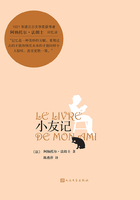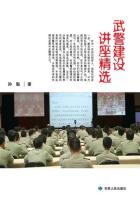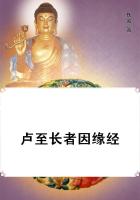The Hard-Won Triumph THREE weeks later, when Dorlcote Mill was at its prettiest moment in all the year - the great chestnuts in blossom, and the grass all deep and daisied - Tom Tulliver came home to it earlier than usual in the evening, and as he passed over the bridge, he looked with the old deep-rooted affection at the respectable red brick house, which always seemed cheerful and inviting outside, let the rooms be as bare and the hearts as sad as they might, inside.There is a very pleasant light in Tom's blue-grey eyes as he glances at the house-windows: that fold in his brow never disappears but it is not unbecoming - it seems to imply a strength of will that may possibly be without harshness, when the eyes and mouth have their gentlest expression.
His firm step becomes quicker, and the corners of his mouth rebel against the compression which is meant to forbid a smile.
The eyes in the parlour were not turned towards the bridge just then, and the group there was sitting in unexpectant silence: Mr Tulliver in his armchair, tired with a long ride, and ruminating with a worn look, fixed chiefly on Maggie, who was bending over her sewing while her mother was ****** the tea.
They all looked up with surprise when they heard the well-known foot.
`Why what's up now, Tom?' said his father.`You're a bit earlier than usual.'
`O, there was nothing more for me to do, so I came away.Well, mother!'
Tom went up to his mother and kissed her - a sign of unusual good-humour with him.Hardly a word or look had passed between him and Maggie in all the three weeks; but his usual incommunicativeness at home prevented this from being noticeable to their parents.
`Father,' said Tom, when they had finished tea, `do you know exactly how much money there is in the tin box?'
`Only a hundred and ninety-three pound,' said Mr Tulliver.`You've brought less o' late - but young fellows like to have their own way with their money.Though I didn't do as I liked before I was of age.' He spoke with rather timid discontent.
`Are you quite sure that's the sum, father?' said Tom: `I wish you would take the trouble to fetch the tin box down.I think you have perhaps made a mistake.'
`How should I make a mistake?' said his father, sharply.`I've counted it often enough.But I can fetch it - if you won't believe me.'
It was always an incident Mr Tulliver liked, in his gloomy life, to fetch the tin box and count the money.
`Don't go out of the room, mother,' said Tom, as he saw her moving, when his father was gone upstairs.
`And isn't Maggie to go?' said Mrs Tulliver, `because somebody must take away the things.'
`Just as she likes,' said Tom indifferently.
That was a cutting word to Maggie.Her heart had leaped with the sudden conviction that Tom was going to tell their father, the debts could be paid - and Tom would have let her be absent when that news was told! But she carried away the tray, and came back immediately.The feeling of injury on her own behalf could not predominate at that moment.
Tom drew to the corner of the table near his father, when the tin box was set down and opened, and the red evening light falling on them made conspicuous the worn, sour gloom of the dark-eyed father and the suppressed joy in the face of the fair-complexioned son.The mother and Maggie sat at the other end of the table; the one in blank patience, the other in palpitating expectation.
Mr Tulliver counted out the money, setting it in order on the table, and then said, glancing sharply at Tom, `There, now! you see I was right enough.'
He paused, looking at the money with bitter despondency.
`There's more nor three hundred wanting - it'll be a fine while before I can save that.Losing that forty-two pound wi' the corn was a sore job.This world's been too many for me.It's took four year to lay this by - it's much if I'm above ground for another four year...
I must trusten to you to pay 'em,' he went on with a trembling voice, `if you keep i' the same mind now you're coming o' age...But you're like enough to bury me first.'
He looked up in Tom's face with a querulous desire for some assurance.
`No, father,' said Tom, speaking with energetic decision, though there was tremor discernible in his voice too, `You will live to see the debts all paid.You shall pay them with your own hand.'
His tone implied something more than mere hopefulness or resolution.
A slight electric shock seemed to pass through Mr Tulliver, and he kept his eyes fixed on Tom with a look of eager inquiry, while Maggie, unable to restrain herself, rushed to her father's side and knelt down by him.
Tom was silent a little while, before he went on.
`A good while ago, my uncle Glegg lent me a little money to trade with, and that has answered.I have three hundred and twenty pounds in the bank.'















